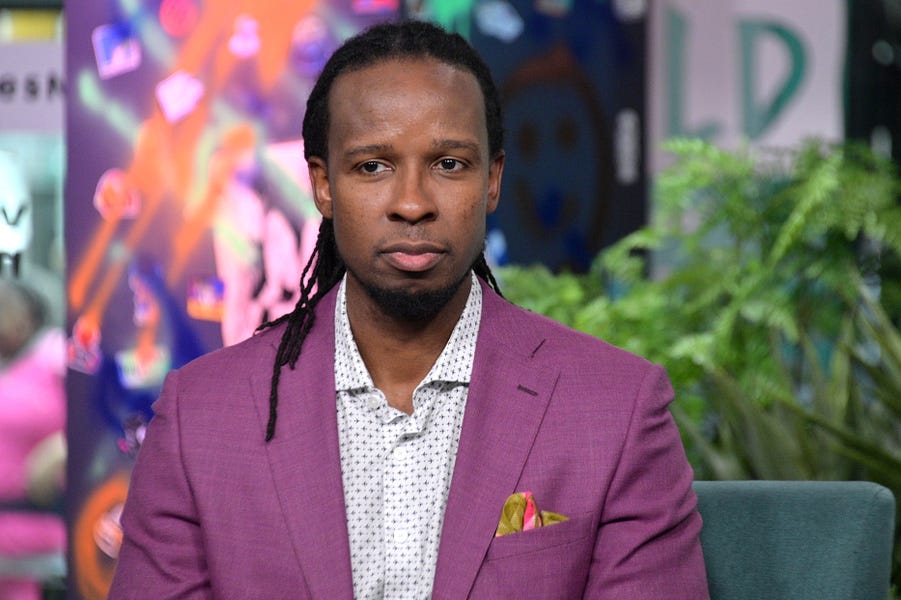“If you’re not part of the solution, you’re part of the problem.”
I’ve long argued that this exhortation is a soft form of totalitarianism. It’s rhetorical bullying. The speaker assumes he or she has authoritative knowledge of not just the problem but the solution. And if you disagree, you’re a problem.
There’s no safe harbor, no middle position where someone can say “let’s discuss this more,” never mind “I disagree” or “your solution is bad.” That’s why “If you’re not part of the solution, you’re part of the problem” is so often used in conjunction with “the time for debate is over.”
Now, when I say it’s totalitarian, that doesn’t mean I’m saying everyone who uses it is a totalitarian. It just means I think they’re usually mistaken.
Usually, not always. There are times when this idea is perfectly defensible. We call such moments a crisis. If you’re trapped in a vault and oxygen is running out, not being part of the solution does make you part of the problem.
This was the point of Martin Niemöller’s 1946 poem “First they came …” in which the narrator recounts how the Nazis “came for” various groups—communists, Jews, etc. — but the narrator didn’t speak out because he wasn’t one of them. “Then they came for me—and there was no one left to speak for me.”
So if you’re in a situation like this, saying, “If you’re not part of the solution …” with intellectual consistency and moral sincerity is reasonable.
But that doesn’t mean you’re right about the nature of the problem—or of the solution.
I normally make this point in the context of climate change, which I think is indeed a real problem, if not the “existential crisis” so many people claim. Moreover, I’m unconvinced by many of the solutions offered by the people shouting, “There’s no time to argue!”
Instead, I want to make this point about racism—or, more specifically, “anti-racism,” the hot new concept in academia, journalism, Hollywood, and other progressive bastions.
Anti-racism is not what it sounds like. I think most people consider themselves anti-racist insofar as most people think racism is bad. I admit, this is a hard question to poll on because even most racists don’t want to tell a pollster they think racism is good, which itself should give you a sense of how unacceptable racism is in our society.
No, “anti-racism” is an idea popularized by Ibram X. Kendi, “one of America’s foremost historians and leading antiracist scholars,” according to his website bio.
“The opposite of racist isn’t ‘not racist,’” Kendi writes in How to Be an Antiracist. “It is ‘antiracist.’”
“What’s the difference?” he asks rhetorically. “One either allows racial inequities to persevere, as a racist, or confronts racial inequities, as an antiracist. There is no in-between safe space of ‘not racist.’”
One can make too much of the fact that this is a classically Marxist framing. Marxists argued that either you accepted the “scientific” reality of the exploitation inherent in the capitalist system or you were an abettor of injustice.
But this Marxist technique is irrelevant. After all, 99 percent of the people who say “If you’re not part of the solution, you’re part of the problem” have never read anything Marx wrote. This zero-sum way of thinking about the world is simply a human tendency. Most of the time it’s just wrong, particularly in a free society.
And this is my problem with anti-racism, along with the branches of critical race theory that peddle the same idea. I’m perfectly willing to concede that racism is a problem. But I’m sure I disagree with Kendi about the scope, nature, or urgency of the problem. I’m even more certain I disagree with at least some of his proposed solutions. Does that make me racist? No. Does that make me unconcerned with racism? No. It just makes me a person with a different set of opinions and priorities.
Kendi disagrees. For instance, he says opposition to slavery reparations is racist. If you can’t see how this if-you-disagree-with-me-you’re-racist claim amounts to moral bullying, my argument will be lost on you. But just to be clear, there are plenty of nonracist arguments against reparations. These arguments may be wrong or unpersuasive. But that doesn’t make them objectively racist—unless you believe that Kendi has pontifical authority to decide such matters.
In a free society, dissent from a prevailing orthodoxy is not necessarily a vice, and stigmatizing disagreement is not necessarily a virtue.







Please note that we at The Dispatch hold ourselves, our work, and our commenters to a higher standard than other places on the internet. We welcome comments that foster genuine debate or discussion—including comments critical of us or our work—but responses that include ad hominem attacks on fellow Dispatch members or are intended to stoke fear and anger may be moderated.
You are currently using a limited time guest pass and do not have access to commenting. Consider subscribing to join the conversation.
With your membership, you only have the ability to comment on The Morning Dispatch articles. Consider upgrading to join the conversation everywhere.